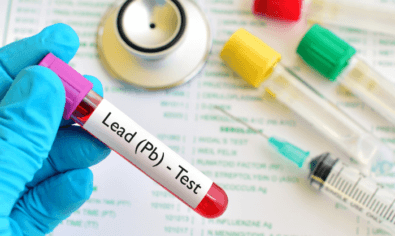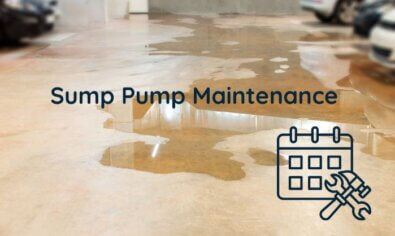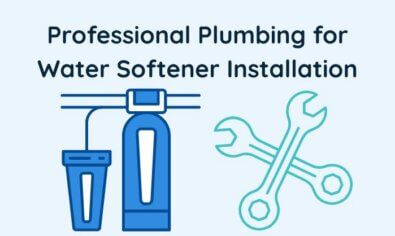What’s the Best Solution for When Your Water Smells Like Sulfur?
This blog features the following key takeaways:
• Hydrogen sulfide, sulfur bacteria and iron bacteria make your water smell like sulfur or rotten eggs.
• This smelly water can make you feel sick when you drink it and also causes problems around the home.
• The sulfur or rotten egg odor can come from your water heater, water softener, well system or groundwater.
• The best way to get rid of the odor for good is with a chlorine injection system like the PurAClear from Angel Water.
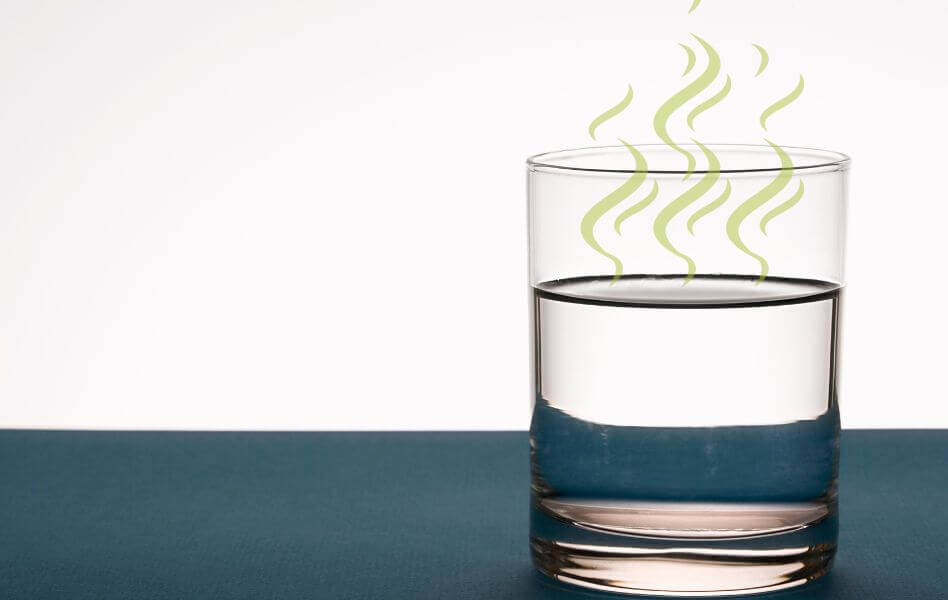
The answer may be hydrogen sulfide, sulfur bacteria or iron bacteria in your water. These pollutants occur in many people’s water supplies across the country, most typically in well water. In higher concentrations, they cause that familiar rotten-egg smell, but in smaller concentrations, they lurk in your water undetected.
You’re probably wondering what these contaminants are and if they have any negative health effects. But we’re guessing you’re even more interested in removing that awful sulfur or rotten egg smell from your water.
You’ve come to the right place!
In this post, we’ll cover all those topics and end with some simple steps you can take to rid yourself of that foul odor.
SPOILER ALERT: The best solution for removing the sulfur or rotten egg smell from water is a chlorine injection system. We’ll discuss more about how these whole house water filters work below. But if you already know you want one, click the button below to learn about the product we offer:
Now, let’s learn why your water smells like sulfur and how to fix the problem.
The Three Causes of Sulfur Smell in Water
The first step to eliminating that rotten egg odor is to identify what’s causing it. As we mentioned above, the three most common culprits are hydrogen sulfide gas, sulfur bacteria and iron bacteria.
All three of these contaminants typically occur in well water because underground wells often create the ideal environment for them to thrive. However, contamination can also happen in city water when problems develop in water treatment equipment or plumbing systems.
Let’s take a closer look at each of these impurities and find out where they come from.
What is Hydrogen Sulfide Gas?
Hydrogen sulfide is a colorless gas that typically results from natural processes. However, it can sometimes also come from manmade processes, though this is much less common.
It occurs in nature when plant and animal material decompose or bacteria reduce sulfate in low-oxygen environments.
Some common natural environments for hydrogen sulfide production include:
- Swamps
- Sulfur springs
- Stagnant ponds
- Crude petroleum and natural gas
Private wells can also become spaces for natural hydrogen sulfide production when they lack proper wellhead protection. Without this protection, there’s nothing to stop surface water from carrying decomposing organic material into the well. Once the organic material gets in the well, bacteria feast on it and create a low-oxygen environment for hydrogen sulfide to form.
Runoff from humanmade processes can also get into private wells and bring hydrogen sulfide with it. These processes include:
- Sewage treatment
- Manure-handling
- Paper and pulp operations
- Petroleum refineries
- Natural gas plants
- Food processing
So, if you get water from a private well located near one of these types of factories, industrial runoff could be the source of the odor. You’ll especially want to have your water tested in this situation because other dangerous industrial toxins could also be present.
Malfunctioning water heaters also produce hydrogen sulfide gas. This process happens when water containing sulfur bacteria reacts with the water heater’s magnesium anode rod. In this case, the smell may only be noticeable in hot water.
Water containing hydrogen sulfide doesn’t smell like rotten eggs until it comes out of the tap. Once it does, the sulfur smell is noticeable at concentrations as low as 0.1 milligrams per liter (mg/L). Once the concentration gets higher than 100 parts per million (ppm), people can’t smell it anymore because it paralyzes the olfactory nerves.
What is Sulfur Bacteria?
Sulfur bacteria are microorganisms that grow in warm, low-oxygen environments where sulfur is present. Some ideal environments for sulfur bacteria to get into water include private wells, water heaters and water softeners. Water heaters are especially ideal because of how warm they keep the water.
Aside from producing smelly hydrogen sulfide gas, sulfur bacteria can also generate the rotten egg smell on their own. This happens when the bacteria are allowed to grow for a long time without being cleaned out of a well, water softener or water heater tank. For this reason, all these items need regular maintenance to keep the rotten egg smell from occurring.
What is Iron Bacteria?
Iron bacteria are microorganisms that form when iron or manganese mix with oxygen in soil or shallow groundwater. Since iron and manganese are both abundant in nature, iron bacteria are also very common. The slimy bacteria often stick to surfaces and are easily identifiable by their rusty, brownish-red appearance.
Iron bacteria also frequently grow alongside sulfur bacteria and cause a musty smell of their own. Sulfur bacteria generate a slime that promotes iron bacteria growth. And the more they are allowed to grow, the more problems they create by clogging wells and plumbing systems.
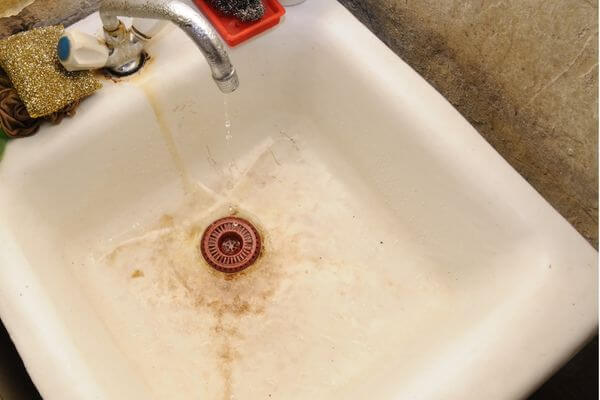
The Health Effects of Drinking Water That Smells Like Sulfur
The most important question to ask when dealing with any type of water contamination is, does it put my health at risk? Thankfully, the health risks of consuming water containing hydrogen sulfide, sulfur bacteria and iron bacteria are low. You’d have to drink water with extremely high concentrations to feel any health effects at all.
For example, the Occupational Safety and Health Administration (OSHA) warns of health hazards for exposure to hydrogen sulfide while on the job. They caution that prolonged exposure to concentrations above 20 ppm could cause fatigue, loss of appetite, poor memory and dizziness, among other issues. However, the concentrations in your water will almost certainly never get that high. And even if it did, the water would taste so bad that you probably wouldn’t drink enough to experience the harsh effects.
Iron and sulfur bacteria also do not pose any serious health risks. Although, consuming too much sulfur can lead to issues like diarrhea, sour stomach and dehydration if you consume too much of it.
The jury is also out on long-term exposure to low levels of hydrogen sulfide. Organizations like the Environmental Protection Agency (EPA) and World Health Organization (WHO) have published studies indicating long-term, low-level exposure may be toxic. However, the details are still fuzzy on what those risks are.
Is Your Water Safe? Get a Free Test for Bacteria and Contaminants!
Contaminated water can carry harmful bacteria that affect your health. Get a free water test today to find out if your water needs treatment with a chlorine injection system.

How Sulfur-Smelling Water Can Damage Your Home
Health risks aren’t the only negative consequences to consider, though. Hydrogen sulfide, iron bacteria and sulfur bacteria can also cause trouble in other ways.
Hydrogen sulfide frequently wreaks havoc around the home by corroding its plumbing pipes and leaving black tarnish on silverware. It can also cause yellow or black stains on your laundry and bathroom fixtures and make water and food appear discolored.
Similarly, iron bacteria cause discoloration in sinks and toilet bowls by leaving reddish-brown stains that are difficult to clean. Both iron and sulfur bacteria can also clog plumbing pipes, decrease your water pressure and give the water an unpleasant taste.
All three of these contaminants are notorious for damaging water treatment appliances like water softeners and water heaters. For this reason, it’s crucial to have your equipment serviced annually, especially if you have well water.
How to Remove Sulfur or Rotten Egg Smell from Water
Truly, these contaminants are much more trouble than they’re worth. So, how do you remove that horrible rotten egg smell from your well water?
First, you must identify the source of the odor. It could be coming from any of the following:
- Water heater
- Water softener
- Well or plumbing system
- Groundwater
Repair Your Water Heater
To determine if your water heater is the source of the problem, run some hot water from your sink and then run some cold water. If they both smell like rotten eggs, then your water heater isn’t the issue. However, if the cold water does not smell like sulfur, then your water heater needs service.
Service Your Water Softener
One question our customers often ask us is, will a water softener remove the sulfur smell? But the opposite is often the case. Water softeners can be a source of the rotten egg odor when sulfur and iron bacteria start growing in them.
So, you should test if your water softener is contaminated by disconnecting your faucet from the water softener and seeing if the smell is still there. If the smell goes away, then your water softener likely contains sulfur bacteria and needs cleaning. We recommend hiring a licensed expert to give your water softener professional maintenance.
Clean Your Well and Plumbing System
You should also check for iron and sulfur bacteria growth in your well and plumbing system. A sure sign of this is if you run your water for a few minutes and the smell starts to fade over time. It indicates that your well needs a deep cleaning.
The best way to clean a well and plumbing system is by scrubbing the iron and sulfur bacteria off the walls with a special treatment chemical. Then you can disinfect the well and plumbing system with shock chlorination. It’s also important to make sure your well cap is in good shape and has proper ventilation so that hydrogen sulfide gas won’t keep building up inside the well.
Treat the Groundwater
Of course, shock chlorination is only a short-term solution. It won’t keep the smell away if your groundwater is the ultimate source of the contamination. You can tell if this is the case if you run your water for multiple minutes and the rotten egg smell stays constant without fading.
In this case, the best solution is to invest in a whole house water filter that will provide your home with constant protection. You must be careful what sort of filter you get though, as not all remove hydrogen sulfide.
To filter hydrogen sulfide, iron bacteria and sulfur bacteria out, you need a system that will inject chlorine into the water so that it cleans and oxidizes the bacteria and hydrogen sulfide out. The water then needs to pass through carbon to get the chlorine out.
At Angel Water, we have helped many households in Chicagoland and Southeast Florida fix water that smells like sulfur. And the best type of whole house water filter we’ve found for this is a chlorine injection system. The filter injects the water with chlorine to oxidize the hydrogen sulfide and bacteria, which eliminates the smell.
Of course, not all chlorine injection systems are created equal. So, which one should you pick for your home? We’ll discuss that next.
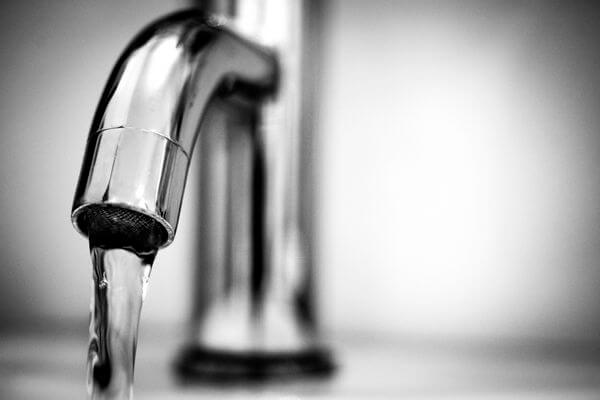
Why the PurAClear Chlorine Injection System is the Best Solution
The chlorine injection system we recommend for eliminating the rotten egg smell from water is the PurAClear.
Like all chlorine injection systems, the PurAClear functions like your own personal water tower. It takes the water into a tank and injects it with chlorine to remove a wide variety of contaminants, including hydrogen sulfide, sulfur bacteria and iron bacteria.
But what makes it better than a city water tower is it also removes the chlorine from the water with a carbon filter before sending it to your home. Removing chlorine is important because drinking water contaminated by chlorine can also have serious health effects.
The PurAClear also outperforms other chlorine injection systems by always providing the exact dosage of chlorine necessary for effective water treatment. Other systems base the amount of chlorine they use on the amount of water they detect in the well pressure tank. This system is imprecise and can lead to overdosing. The PurAClear doesn’t have this problem because its patented valve keeps precise track of the amount of water it’s treating.
For all these reasons, you can’t go wrong with the PurAClear if you want that sulfur or rotten egg smell out of your water for good!
Ready to Unplug Your Nose and Enjoy Cleaner Water?
You may have resigned yourself to living with water that smells like sulfur, but it doesn’t have to be that way! You can get rid of the hydrogen sulfide, iron bacteria and sulfur bacteria that cause these problems. All it takes is professional maintenance and investing in a proven chlorine injection system like the PurAClear.
At Angel Water, we’re here to help you with everything we discussed in this blog. Our licensed plumbers can professionally service your water heater, water softener and well system for you. And we’d be more than happy to professionally install your PurAClear chlorine injection system for you if you decide to go that route.
Editor’s Note: This blog was originally published in November 2016 and was updated in December 2022.
Eliminate Contaminants from Your Water – Schedule an Appointment Now!
Protect your family from harmful bacteria and contaminants in your water. Schedule an appointment with our specialists today to discuss how a chlorine injection system can purify your water.

